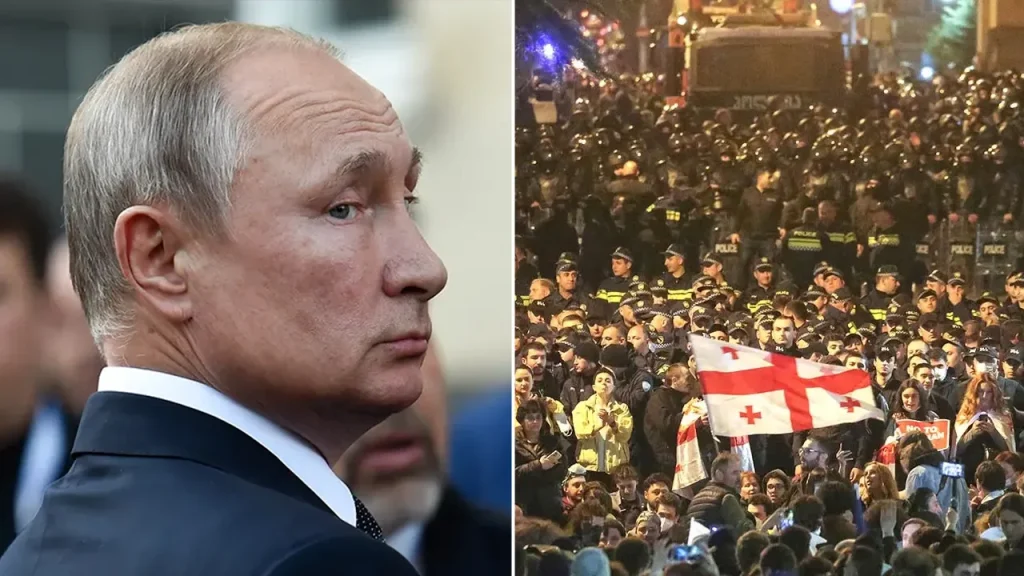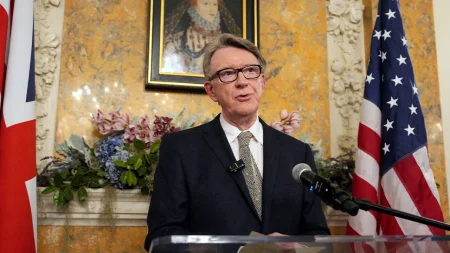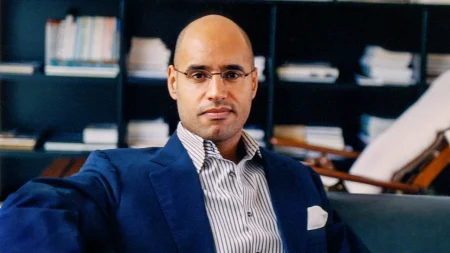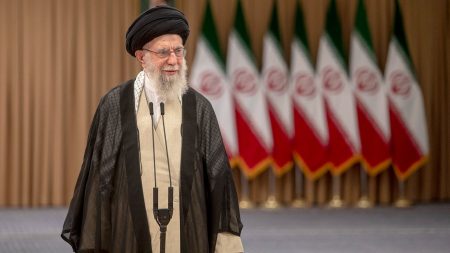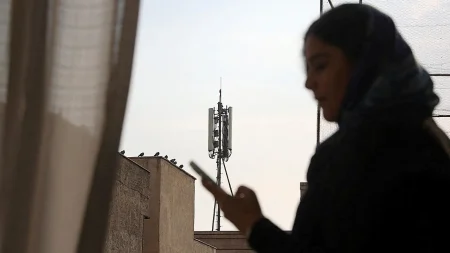The political landscape in Georgia is embroiled in controversy and accusations of Russian interference, jeopardizing the nation’s aspirations to join the European Union. Former Prime Minister Nika Gilauri, in an exclusive interview with Fox News Digital, asserted that recent elections were rigged, resulting in an illegitimate parliament and a significant setback for Georgian democracy. He pointed to a pattern of Russian meddling in neighboring countries, citing similar scenarios in Romania, Moldova, and Ukraine, suggesting a coordinated effort orchestrated by Moscow to undermine democratic processes and exert influence in the region.
The contested election victory of the ruling Georgian Dream party, perceived as pro-Russia, has sparked widespread protests and condemnation. Thousands of Georgians have braved freezing temperatures and police crackdowns to demonstrate against the election results and the government’s subsequent decision to halt efforts towards EU integration. The protests have been met with a heavy-handed response from authorities, with hundreds of arrests and reports of beatings and ill-treatment of demonstrators. Amnesty International has documented these human rights abuses, further highlighting the escalating tensions and erosion of democratic freedoms in the country.
Amid this political turmoil, Georgia’s President Salome Zourabichvili has emerged as a key figure of resistance. Gilauri emphasized Zourabichvili’s legitimacy as the only remaining credible institution in Georgia and urged her to remain in her post despite the impending end of her term. Zourabichvili has openly challenged the election results, declaring them fraudulent and refusing to recognize the parliament’s authority to appoint her successor. This defiance has placed her in direct opposition to the Georgian Dream party and their chosen successor, Mikheil Kavelashvili, who is viewed as critical of the West and aligned with the party’s pro-Russian leanings.
Zourabichvili’s stance has resonated with the protest movement, and she has become a de facto leader of the opposition. She has called for new elections and negotiations with the Georgian Dream leadership to resolve the political crisis. However, her continued defiance beyond her official term could further destabilize the situation. The Georgian Dream party, led by Prime Minister Irakli Kobakhidze, has threatened Zourabichvili with imprisonment if she refuses to step down, raising the stakes and creating a potential flashpoint for further conflict.
The contested election results have drawn criticism from international observers as well. The Organization for Security and Cooperation in Europe (OSCE) noted a “tense environment” and widespread voter intimidation during the elections. The European Council President has called for an investigation into the alleged irregularities. These concerns from international bodies underscore the gravity of the situation and the potential long-term consequences for Georgia’s democratic trajectory and its relationship with the European Union.
Georgia’s pursuit of EU membership has been a long-standing national aspiration, with significant public support. However, the Georgian Dream party’s actions, including the controversial “foreign agent” law and the recent election controversy, have stalled this process and strained relations with the West. The law, which requires organizations receiving foreign funding to register as foreign agents, has been criticized as a Kremlin-inspired tool to suppress dissent and limit civil society activities. The United States has responded with sanctions and a freeze on aid to the Georgian government. The ongoing political crisis further jeopardizes Georgia’s European integration prospects and raises concerns about the country’s democratic future.




